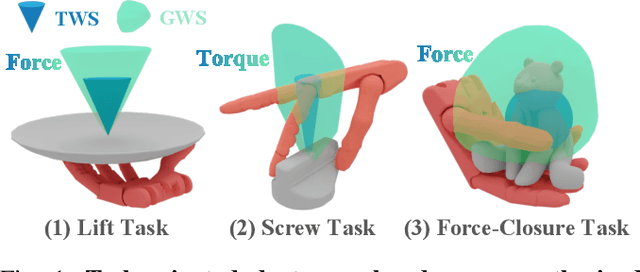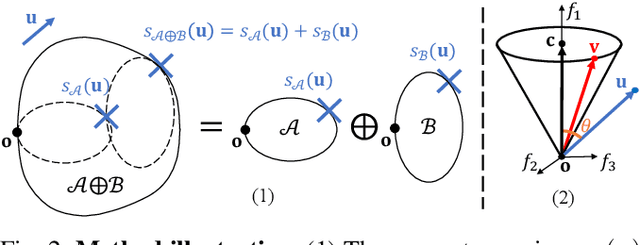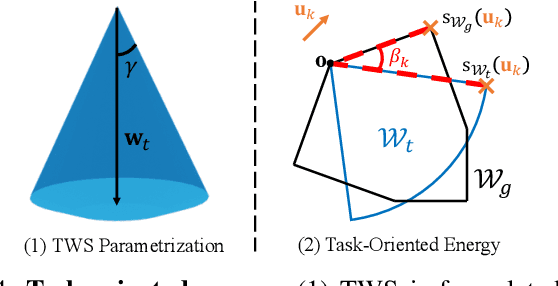Task-Oriented Dexterous Grasp Synthesis via Differentiable Grasp Wrench Boundary Estimator
Paper and Code
Sep 24, 2023



Analytical dexterous grasping synthesis is often driven by grasp quality metrics. However, existing metrics possess many problems, such as being computationally expensive, physically inaccurate, and non-differentiable. Moreover, none of them can facilitate the synthesis of non-force-closure grasps, which account for a significant portion of task-oriented grasping such as lid screwing and button pushing. The main challenge behind all the above drawbacks is the difficulty in modeling the complex Grasp Wrench Space (GWS). In this work, we overcome this challenge by proposing a novel GWS estimator, thus enabling gradient-based task-oriented dexterous grasp synthesis for the first time. Our key contribution is a fast, accurate, and differentiable technique to estimate the GWS boundary with good physical interpretability by parallel sampling and mapping, which does not require iterative optimization. Second, based on our differentiable GWS estimator, we derive a task-oriented energy function to enable gradient-based grasp synthesis and a metric to evaluate non-force-closure grasps. Finally, we improve the previous dexterous grasp synthesis pipeline mainly by a novel technique to make nearest-point calculation differentiable, even on mesh edges and vertices. Extensive experiments are performed to verify the efficiency and effectiveness of our methods. Our GWS estimator can run in several milliseconds on GPUs with minimal memory cost, more than three orders of magnitude faster than the classic discretization-based method. Using this GWS estimator, we synthesize 0.1 million dexterous grasps to show that our pipeline can significantly outperform the SOTA method, even in task-unaware force-closure-grasp synthesis. For task-oriented grasp synthesis, we provide some qualitative results.
 Add to Chrome
Add to Chrome Add to Firefox
Add to Firefox Add to Edge
Add to Edge